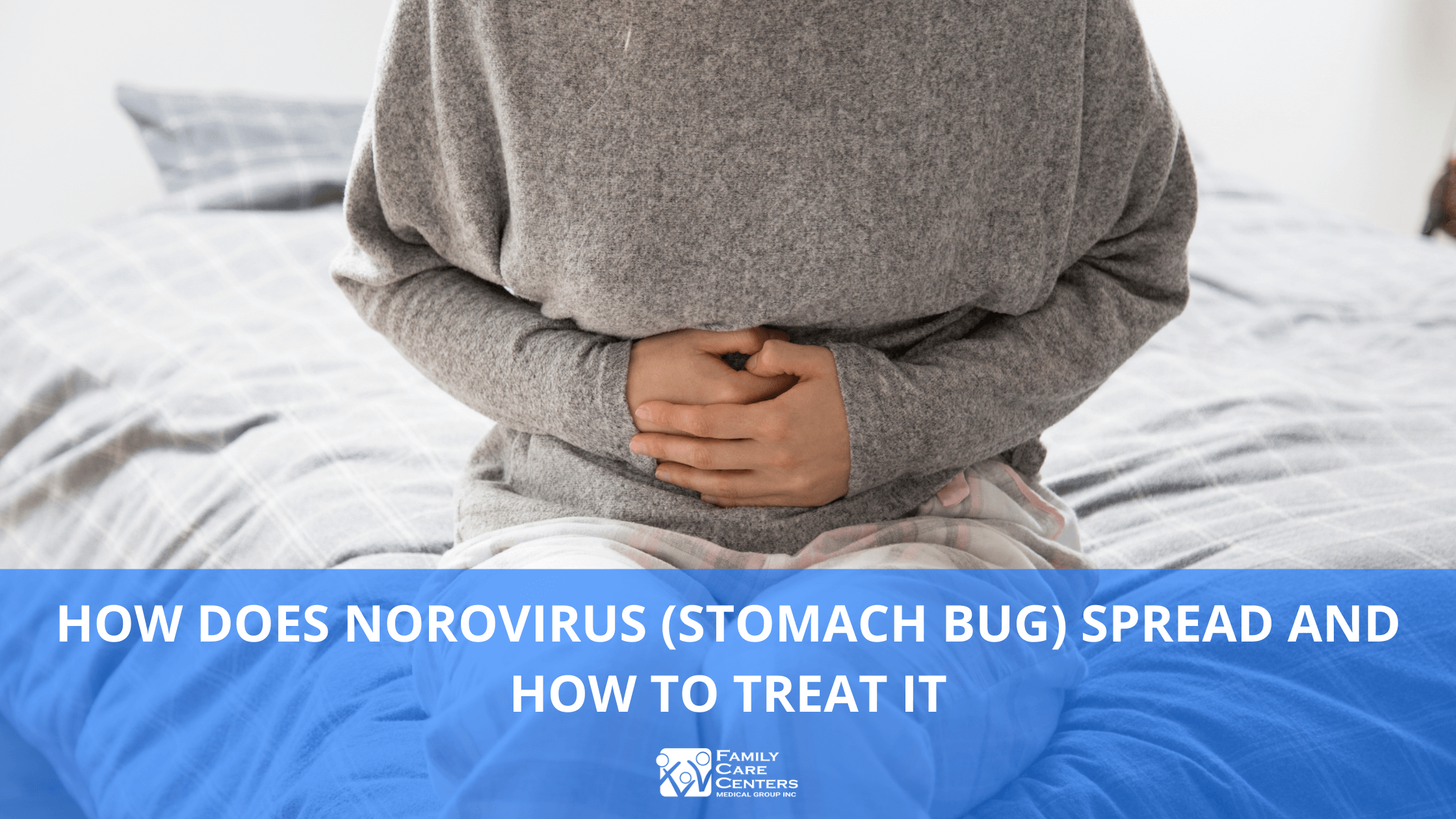

Fountain Valley Urgent Care Permanently Closed. We’re Here to Care for You at Our Other Locations.

When you’re infected with norovirus, you may experience a host of discomfort and symptoms, including nausea, vomiting, and diarrhea. The virus is the most common cause of stomach flu, aka “the winter vomiting bug,” and can also cause stomach and muscle pain. You’ll generally feel ill and dehydrated.
While norovirus can infect anyone, it can more seriously affect the elderly, people with low immunity, or women who are pregnant. In such cases, the infection may cause complications like severe dehydration. This virus can cause dizziness, dry mouth, and fatigue, among other serious symptoms.
Once you’re infected, you can infect those around you. We recommend taking precautions to protect yourself and your loved ones from getting infected with this stomach bug.
When there’s a so-called “stomach flu” outbreak, you should be aware that the infection can spread quickly in several ways:
Norovirus can spread through food or drinks served in public and private places, including restaurants, schools, or your own home. If you consume anything contaminated with the microbe, you’ll be infected and can potentially infect others. The virus may end up in food or water through:
When you touch a surface that’s contaminated with the virus, you risk getting infected if you then handle food items that you eat. The microbe can contaminate surfaces in ways like:
You should be careful when taking care of people with norovirus as they can infect you. This virus is normally passed by the oral-fecal route – putting infected material in your mouth — but it also can be transmitted through the air if someone vomits near you and you inhale the fumes through your mouth. You could get infected while changing bedding or diapers containing an infected person’s feces or vomit.
Once infected, you may start showing symptoms in the next 12 to 48 hours. In some patients, the symptoms disappear in one day, while others may take several days. However, the people around you are not safe from transmission even if you’ve recovered in three days. You may continue discharging feces contaminated with the virus for up to 14 days after recovery.
Patients with an underlying condition may continue shedding the virus for months. To protect your loved ones, colleagues, or customers, you may have your stool tested after recovery to confirm no traces of norovirus are detected.
Most people with mild or no norovirus symptoms don’t require treatment. The infection usually goes away in a few days. So, if you get infected, your priority should be to manage symptoms and avoid infecting the people around you, at home, or work.
However, you may want to get tested if it lasts longer than a week because many other health complications can cause diarrhea and vomiting. Your doctor can order stool testing for analysis.
Like many viral infections, norovirus has no specific medication treatment; care is supportive, and the infection normally runs its course. However, if the condition causes dehydration due to vomiting and diarrhea, you will need to be rehydrated.
Your treatment options include:
Severe dehydration can cause serious health complications. If you or your child have lost a significant amount of fluids due to the infection, you may require intravenous (by vein) fluids administered in an ER.
Even though norovirus has no specific antibiotic “cure,” certain cases can and should be treated by a medical professional. See your doctor right away if:
If you suspect that you or your child has norovirus, don’t hesitate to visit one of our Family Care Centers for experienced guidance.
Proper hygiene is critical to prevent the spread of norovirus. If you or your child have the bug:
While norovirus can resolve in a few days without intervention, this isn’t guaranteed. Thankfully, the viral infection can be treated even if it’s accompanied by severe symptoms. Visit one of our urgent care centers in Irvine, Costa Mesa, or Fountain Valley for a conclusive diagnosis and treatment.
Share Your Valuable Thought